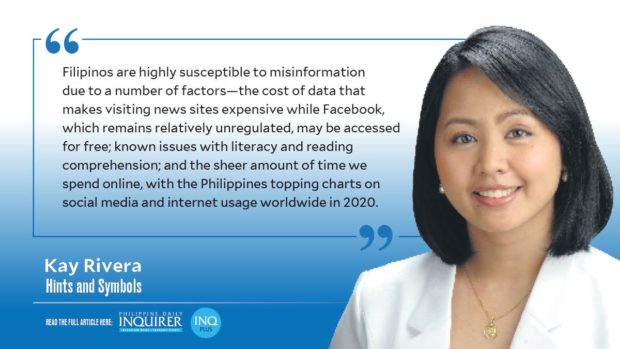Language barriers
Last month, this column expressed some satisfaction in the fact that social media giants, like Facebook and YouTube, have slowly begun to shift policies to combat social media misinformation. Such policies, such as the recent ban on anti-vaccine content on YouTube, are obviously long overdue. It feels like something of a victory that platforms are now increasingly recognizing exactly how accountable they have been for divisive, even violent movements such as the rise of the anti-vaccine and anti-mask movements, violence against the Rohingya in Myanmar, and the rise of populist politics.
However, it’s becoming increasingly clear that resolving to self-correct is one thing, but responding to valid reports is another, especially when the content is in a different language. Recently, Stephanie Valencia of The Washington Post wrote about how Spanish-language misinformation narratives continue to thrive on Facebook or YouTube, lagging far behind actions for posts made in English. Apart from misinformation, hate speech is also found to run unchecked in such communities. The delay in responding to misinformation is definitely more pronounced in non-English posts: the online activist organization Avaaz claims that Facebook fails to flag 68 percent of Italian-language misinformation content and 70 percent of Spanish-language content, versus only 29 percent of English-language content.
I wonder how well and how quickly Filipino-language content is being flagged, because it is still unfortunately very easy to find anti-vaccine content on Facebook. I need only search “mga namamatay sa bakuna” or “bakulam” and such posts pop up easily, with some getting thousands of shares and likes as they talk about the supposed conspiracy to cover up the deadly effects of the COVID-19 vaccine. “Hinaharang ang balita,” one post says, “Pero patay dito, patay doon.” Some posts, rife with misspellings and unscientific facts, claim that the vaccines being distributed are only placebos. Others accuse governments across the world of being in cahoots with “Big Pharma” to create the coronavirus “myth” so that they can make big bucks through distribution of unnecessary vaccines.
It isn’t only Facebook. Despite the promise of better regulation, anti-vaccine content persists. A popular personality who calls himself “Doc” continues to post such content with impunity. “Anong point ng vaccination kung gagaling ka naman?” this so-called doctor asks in one video, since the coronavirus is supposedly self-limiting anyway like any other respiratory virus. He calls the alarmed reaction of Filipinos against COVID-19 an “overreaction,” calls into question the claims of frontliners that critical care units and resources have been exhausted thanks to the virus, accuses physicians of doctoring diagnoses as these supposedly earn more from COVID-19 cases, calls to decrease COVID-19 testing. The video has been up for seven months and has yet to be removed from the platform despite attempts to report it. Another video posts voice clips of a physician and supposed vaccine expert from a prominent state hospital saying that the “bakulam” is more dangerous than the virus itself. The poster has thousands of subscribers.
The delay, and sometimes refusal, to act on reports about these posts is damaging, as harmful content can have thousands of views before it gets taken down, and Facebook and YouTube do not retroactively notify those who have been exposed. The outcomes for reporting hate speech and fake news are highly dependent on tech support and language. I recall that during the height of the Facebook and Twitter trend calling popular idol group BTS a homophobic slur (“Notes on ‘bayot’ and bigotry,” 6/21/21), entire communities attempted to report posts and comments as hate speech. But because many comments which were clearly hate speech were in Filipino, reports we submitted ended up ignored. In response to my own reports, Facebook support replied repeatedly, “We reviewed the comment that you reported and found that it doesn’t go against any of our Community Standards. For this reason we didn’t take the comment down.” I’ve received the same response when flagging down clear anti-vaccine content that just happens to be in the Filipino language.
Filipinos are highly susceptible to misinformation due to a number of factors—the cost of data that makes visiting news sites expensive while Facebook, which remains relatively unregulated, may be accessed for free; known issues with literacy and reading comprehension; and the sheer amount of time we spend online, with the Philippines topping charts on social media and internet usage worldwide in 2020. It’s a clear disservice on the part of such platforms not to provide the resources to address such language-specific problems in flagging content, especially when we, as a nation of avid social media users, drive so much of the traffic.





















